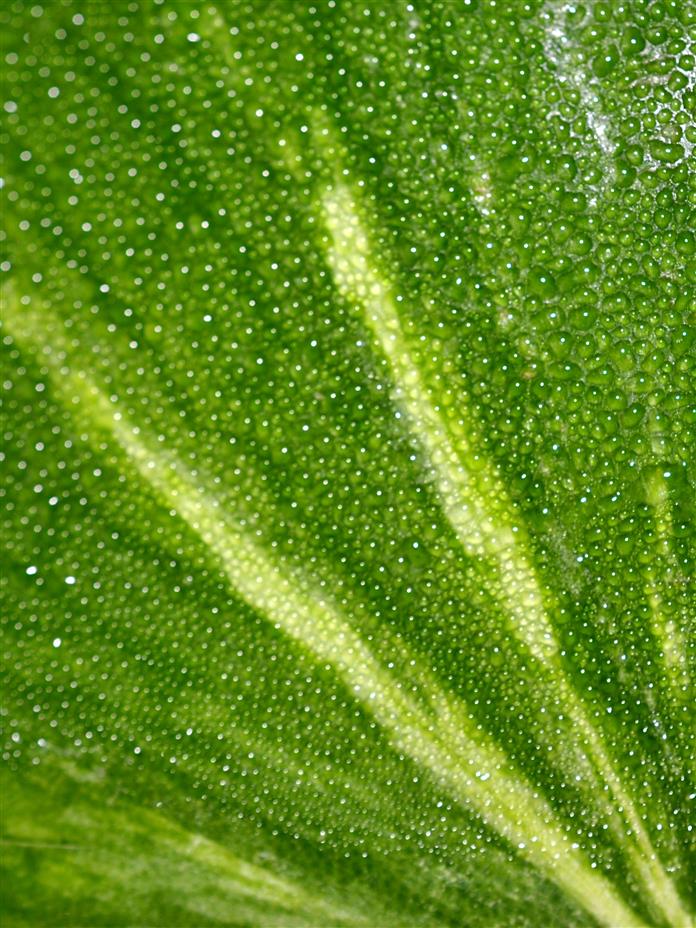
Tap to Read ➤
Licorice Benefits
Chandramita Bora


Licorice is commonly used as a flavoring agent in food and beverages. But the root of the licorice plant also possesses some important medicinal properties. In this story, you can find out more about licorice and its potential health benefits.

Did You Know?
Glycyrrhizin, a compound found in the root of the licorice plant, is known to be about 50 times sweeter than sugar.

Licorice or glycyrrhiza glabra is a leguminous plant, native to Southern Europe and parts of Asia. The plant is mainly cultivated for its root, which is used to obtain licorice extract. This extract is then used to flavor candies, and some other food and beverages.

But nowadays, a large number of licorice candies and sweets actually contain a very low amount of licorice. Instead of licorice, aniseed oil is mostly used to flavor these candies. The compound 'glycyrrhizin', found in the root of the licorice plant is sweeter than sucrose, and it has some important medicinal properties. Licorice is an integral part of both Eastern and Western traditional medicine. In fact, it has been in use for more than 5,000 years.

Health Benefits of Licorice

Alleviates Cold and Respiratory Ailments
Licorice is a herbal remedy for some common ailments, like cold, sore throat, and bronchitis. Being an expectorant, it helps loosen the phlegm or mucus from the respiratory tract, and thereby, facilitates its expulsion. It can be equally effective in allergic conditions, like hay fever, bronchial asthma, and allergic rhinitis. Licorice extract can also be used to relieve fever and headaches.

Heals Stomach Ulcers
Licorice can help accelerate the healing of stomach ulcers. It has been used as a herbal remedy for peptic ulcers for a long time. However, the studies conducted in this regard have produced mixed results. Some studies have found that, deglycyrrhizinated licorice along with antacid can help treat stomach ulcers, though it is not possible to evaluate how much of the benefits can be attributed to deglycyrrhizinated licorice alone.

In general, it is believed that licorice can protect the stomach lining by enhancing the actions of the mucus-secreting cells. This can help protect the stomach lining from gastric acids, and thus promote faster healing of the ulcers. The flavonoids found in licorice extract may help inhibit the growth of the bacterium, Helicobacter pylori, which is responsible for causing stomach ulcers in a large number of individuals.

Prevents Viral Infections
It can strengthen the immune system by activating the interferons in the body. These chemicals are important antiviral agents that inhibit viral replication. So, licorice can strengthen the immune system, and increase its ability to prevent viral diseases, especially cold sores and genital herpes, caused by the herpes simplex virus.

In Europe, it is a widely used herbal remedy for treating viral hepatitis, mainly hepatitis B and C.
Eases Menopausal Symptoms
Licorice contains flavonoids, and plant estrogen or phytoestrogens. The phytoestrogens found in licorice have mild estrogenic effect, for which they can help ease the uncomfortable symptoms associated with menopause and perimenopause. Licorice can provide relief in premenstrual syndrome as well.
Protects the Heart
Licorice may help control the levels of cholesterol by increasing the flow of bile in the body. Bile acids are known to eliminate excess cholesterol from the body. Furthermore, licorice can prevent the oxidation of LDL cholesterol, which is a major contributory factor for several heart and cardiovascular diseases.
Improves the Functions of Adrenal Glands
The compound glycyrrhizic acid, found in licorice root has been observed to promote the functions of the adrenal glands. Glycyrrhizic acid slows down the breakdown of the hormone cortisol, and thereby ensures its availability for a longer period of time.
Cortisol is known to possess anti-inflammatory properties. A deficiency of cortisol can result in depression, chronic fatigue, and anxiety. Therefore, licorice root may prove helpful for conditions like depression and nervousness as well.
Softens and Soothes the Skin
Licorice has a soothing and softening effect on the skin, for which it has been used for treating several skin diseases. This herb is also known to possess anti-inflammatory properties, and hence it can provide relief in inflammatory skin conditions.
It is more commonly used for the following skin diseases:
✧ Eczema or atopic dermatitis
✧ Dermatitis
✧ Psoriasis
✧ Itchy and dry skin
✧ Eczema or atopic dermatitis
✧ Dermatitis
✧ Psoriasis
✧ Itchy and dry skin
Other Benefits
It has been used to treat a host of other medical conditions in traditional medicine. The following are some of the most common conditions for which licorice is used:
✧ Hyperkalemia (abnormally elevated levels of potassium in blood)
✧ Hypoglycemia
✧ Chronic fatigue syndrome
✧ Cirrhosis of liver
✧ Crohn's disease
✧ Irritable bowel syndrome
✧ Gout
✧ Arthritis
✧ Yeast infections
✧ Fungal infections
✧ Gingivitis
✧ Shingles
✧ Depression
✧ Hypoglycemia
✧ Chronic fatigue syndrome
✧ Cirrhosis of liver
✧ Crohn's disease
✧ Irritable bowel syndrome
✧ Gout
✧ Arthritis
✧ Yeast infections
✧ Fungal infections
✧ Gingivitis
✧ Shingles
✧ Depression
Side Effects of Licorice
An excessive consumption of licorice, especially the one that contains glycyrrhizin is known to cause several side effects, some of which can be potentially dangerous. The most common side effects associated with the overuse of licorice are:
✧ High blood pressure
✧ Edema or fluid retention
✧ Diarrhea and other gastrointestinal problems
✧ Hypokalemia (low level of potassium in blood).
✧ Edema or fluid retention
✧ Diarrhea and other gastrointestinal problems
✧ Hypokalemia (low level of potassium in blood).
An excessive intake of licorice can be harmful for the liver and the cardiovascular system as well. Licorice root or its extract is usually not recommended for people with certain medical conditions, like diabetes, edema, hypertension, heart disease, glaucoma, and kidney and liver problems. Pregnant women should also avoid this herbal extract.
Licorice can also interact with certain medications. The following are some of the common medications with which licorice can interact, and produce undesirable effects at times.
✧ Corticosteroids
✧ High blood pressure medications
✧ Certain antidepressants
✧ Digoxin
✧ Oral contraceptives
✧ Warfarin
✧ Ethacrynic acid
✧ Furosemide
✧ Diuretics
✧ High blood pressure medications
✧ Certain antidepressants
✧ Digoxin
✧ Oral contraceptives
✧ Warfarin
✧ Ethacrynic acid
✧ Furosemide
✧ Diuretics
So, licorice should be used in moderation, and only under the strict guidance of a physician or health care professional. There is no doubt that it has immense benefits for a wide range of health conditions. But it should be kept in mind, that an excessive intake of any kind of herb or herbal supplementation can be associated with some side effects. Therefore, a physician should be consulted before taking herbal supplements for medicinal purposes.
Disclaimer: This story is for informative purposes only, and should not be treated as a substitute for professional medical advice.